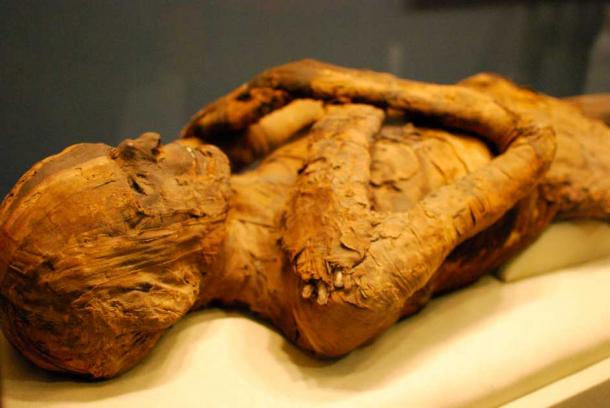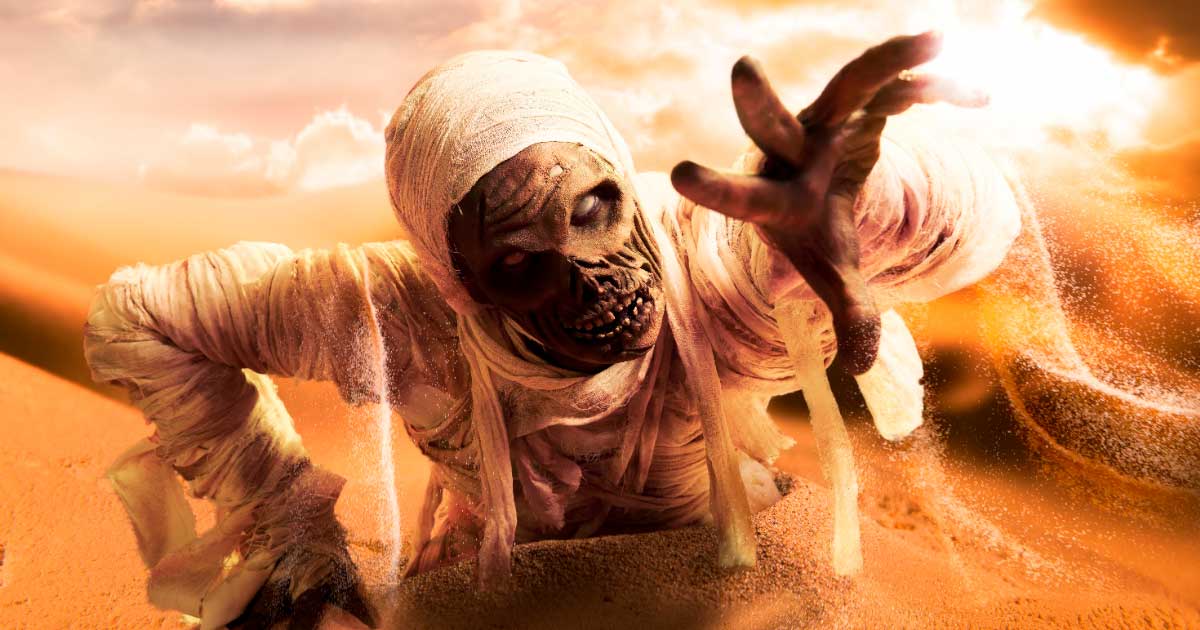Woking the Dead: British Museum Bans the Word ‘Mummy’ for Ancient Remains
British Museum chiefs have been accused of being ‘woke’ and virtue signaling to the public after banning the word ‘mummy.’ The museum claims they “don’t want to offend dead Egyptians.”
You might be thinking that it would be impossible to hurt the feelings and trigger the social sensitivities of a 3,000-year-old corpse, but British Museum staff have found a way. Don't use the word “mummy” they say, because “it's offensive to ancient Egyptians” and dehumanizes dead people.
Decision makers at The British Museum claim they have banned the term ‘mummy’ out of respect for 3,000-year-old dead Egyptians. To replace ‘mummy,’ the museum deems the term ‘mummified people’ to be more politically correct.
The Evolution Of Woke to Wokeness
When my editor sends me stories like this, I generally cringe. Like all writers, I cannot mention the term ‘woke’ without triggering and offending many. This is because the word is generally used in a derogatory way, and according to a recent report in Forbes, the word ‘woke’ is deemed “an offensive cultural appropriation.”
The reason sensitivities are associated with this word is because the phrase “stay woke” originated within America’s Black community more than a decade ago, where it meant “stay vigilant,” “don’t be fooled,” and “don’t sleep.”
- Ten Incredible Mummy Discoveries That Shocked the World
- Huge Egyptian Tomb Discovered with Extraordinarily Rare Mummy Portraits

Do you think this mummified person would be offended if I called them a mummy? (Karen Neoh / CC BY SA 2.0)
Why Are Mummies Called Mummies Anyway?
The word ‘mummy’ is not incorrect. It comes from the Arabic word mumiya which means "wax" or "bitumen" referring to the blackish-brown resin used to embalm the dead in ancient Egypt. This embalming process created the characteristic dried, shriveled appearance of the bodies, which came to be known as "mummies." The term was later adopted by Europeans in the 16th century to describe similar preserved bodies from other cultures around the world.
But staff at the British Museum said the term mummy dehumanizes dead Egyptians. Furthermore, according to a report in the Daily Mail, they described the word as “an unwelcome throwback to Britain's colonial past.” To replace this supposedly offensive word, museum chiefs said it is more politically acceptable to use the terms ‘mummified person’ or ‘mummified remains.’
If this name change from ‘mummy’ to ‘mummified people’ had an academic basis, then this story might have passed with little attention, but banning a word out of “respect for deceased ancient Egyptians” has raised a storm of resistance from the academic community.

Examination of a Mummy, 1891 painting by Paul Dominique Philippoteaux (Public Domain)
Saving Humanity, Or Change for Change’s Sake?
Aligning with the British Museum’s recent banning of the word ‘mummy,’ Jo Anderson at The Great North Museum: Hancock in Newcastle, said he has adopted the new term ‘mummified person,’ to describe the preserved remains of “Irtyru,” an Egyptian woman who died around 600 BC. He said this was in part “to acknowledge the history of colonial exploitation and to give her the respect she deserves.”
Anderson also said “the word mummy is dehumanizing,” whereas the term ‘mummified person’ encourages our visitors to think of the individual. To strengthen his name change, Anderson said he was concerned that the public associated mummies with “terrifying monsters, thanks to countless horror B-movies such as 1932's The Mummy.” According to Anderson, legends about the mummy's curse and movies portraying supernatural monsters, “can undermine humanity.”
Is the British Museum Virtue Signaling?
A critic of the name change, Chris McGovern, the chairman of the Campaign for Real Education, said “The curse of the mummy is driving these academics mad!” The new terms were also slammed by Jeremy Black, author of Imperial Legacies: The British Empire around the World, said the changes are nothing more than “woke virtue signaling.” Black added that when museums cut themselves off from popular culture, “they show contempt” for how we all understand words, meanings and history.
So, Egyptologists will no longer be “field researching mummies,” but performing “practicum on mummified people.” Permission to laugh granted in full.
Top Image: The British Museum will no longer use the term ‘mummy’, in an attempt to show sensitivity towards the mummified remains. Source: fergregory / Adobe Stock
By Ashley Cowie
References
Bellamy-Walker, T. September 7, 2022. Black Lives Matter activists accuse executive of stealing $10 million in donor funds. NBC News. Available at: https://www.nbcnews.com/news/nbcblk/black-lives-matter-activists-accuse-executive-stealing-10-million-dono-rcna46481
Brownlee, D. April 19, 2021. Exhibit A Bill Maher: Why White People Should Stop Using The Term ‘Woke’…Immediately. Forbes. Available at: https://www.forbes.com/sites/danabrownlee/2021/04/19/why-white-people-should-stop-using-the-term-wokeimmediately/?sh=28aa574b7779
Henry, J. January 21, 2023. Don't use the word 'MUMMY'... it's offensive to ancient Egyptians: British Museum bans age-old expression out of 'respect' for 3,000-year-old dead. Daily Mail. Available at: https://www.dailymail.co.uk/news/article-11661057/British-Museum-bans-word-MUMMY-respect-3-000-year-old-dead.html
Hoge, B. January 11, 2023. USC, Michigan Health Department Reach Peak Absurdity, Claim Word 'Field' Is Racist. Red State. Available at: https://redstate.com/bobhoge/2023/01/11/usc-michigan-health-department-reach-peak-absurdity-claim-word-field-is-racist-n687233
Ross, G. October 5, 2022. Kanye calls Black Lives Matter movement a ‘scam’, doubling down on latest controversy. MixMag. Available at: https://mixmag.net/read/kanye-west-black-lives-matter-movemen-scam-amidst-controversy-t-shirt-news

















